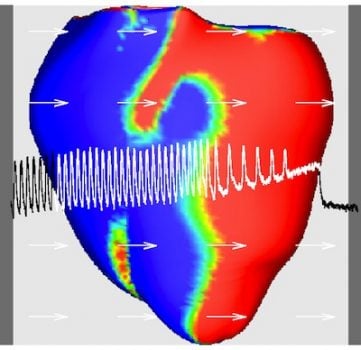BME researchers develop novel approach to defibrillation

Three research labs at Hopkins—the Tung and Trayanova labs in Biomedical Engineering and the Berger lab in Cardiology—have combined forces to investigate the efficacy of high frequency alternating current as an alternative to conventional waveforms used to defibrillate the heart. This research could lead to defibrillator devices that apply a more gentle, less painful current to restart the heart rhythm. The results of this project are described in a research article entitled “Reversibile Conduction Block and Defibrillation with High-Frequency Electric Field,” published in the Sept 28 issue of Science Translational Medicine.
BME graduate students had prominent roles in the project: co-lead author Seth Weinberg, a PhD student in the Tung lab, conducted optical mapping experiments to demonstrate the capabilities of the new approach; Kelly Chang, a PhD student in the Trayanova Lab, conducted simulations to explore the interaction of the applied field with the heart; and Renjun Zhu, a PhD student in the Tung Lab, also contributed to the experimental effort.
